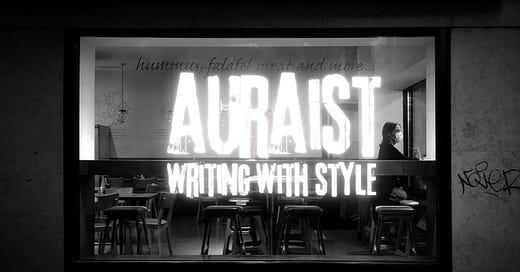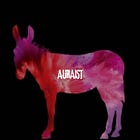The best-written recent literary fiction and nonfiction
Links to two new picks. Plus the latest pick from our subscribers' submissions.
Coming on Friday for paid subscribers: the best-written book of the month.
Many readers who completed our survey said they were finding our posts too long. That’s why we’ve split the picks into separate pages.
Recent literary fiction
Our latest pick of the best-written work is here»
Recent nonfiction
Subscribers’ submissions
At the above links you’ll find:
The opening pages of our picks. Make up your own mind about the quality of the prose.
The full list of the books we considered.
Information about submitting to Auraist. If we publish your work, we’ll invite you to answer our questions on prose style. Your answers will be considered for inclusion in the published collection of these answers by many of the world’s best writers.
Please consider completing our reader survey or clicking the Like (heart) button to help spread the word about the only publication set up solely to champion beautiful prose and battle the Replicant Voice.
Best-written books of the century
Recommended Substacks
Guides to prose technique
‘The more specific and particular a word is the more likely it is to trigger the memory of touch and scent, the two most evocative senses.’
Evidence from cognitive neuroscience suggests that as readers we take the experience—the feelings, thoughts, struggles—of well-drawn characters as our own. That immersion is made possible by triggering a particular set of the reader's neurons, called mirror neurons. These bundles of brain tissue fire when you do something such as pick an apple. The fascinating part is that they also fire when you simply observe another person picking an apple. The mirror neurons reflect the behaviour of the other person, they behave as though you yourself were the one reaching for that apple. You are physically—neurologically, biochemically—recreating another's actions and experience inside yourself. Your body echoes theirs. You feel the apple-picking as intimately as if it were you doing it. In a very real way, it is you doing it. You have experienced picking an apple even though, in real life, you have not.
Part of this is achieved through word choice. The more specific and particular a word is the more likely it is to trigger the memory of touch and scent, the two most evocative senses. For example, if I read ‘rose,’ a functional MRI scan will show the areas of my brain relating to smell lighting up—whereas the more general 'flower' might not have the same effect. Similarly, reading ‘leather glove’ instead of ‘glove’ stimulates my brain in the same way as actually touching leather. So if I read of a character who picks up a fallen glove scented with rose water and lifts it to her face, as a reader I will feel the cool-then-warm of the leather against my upper lip, hear the faint but distinctive creak of the leather, smell that rose: I am right there, not beside the character but inside her, wearing her skin, seeing, hearing, feeling as she does. And when an arrow thunks into the tree by her head I jump as she jumps. I'm not reading, I'm living.
Read on here »
Browse all our guides to prose technique »
Coming soon we have the best-written recent releases, and more authors answer our questions on prose technique. Plus more selections from our subscribers’ submissions.
Paid subscribers will also receive our pick of the best-written book of the month.
Our archive has dozens of author articles on prose style, hundreds of picks from recent releases and prize shortlists, and the best-written books of the century. A paid subscription gives you full access to this archive.
Thanks for reading Auraist and helping to support fine writing.
Sean McNulty











Loving that guide to prose style, thank you!
Love this list!